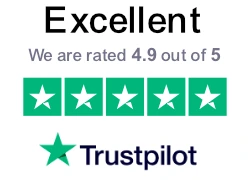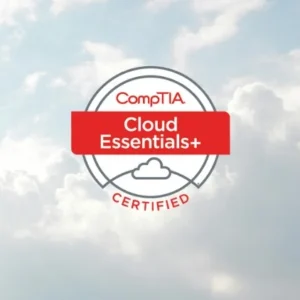Learn to Disappear Digitally — Master the Tools and Tactics of Anonymous Web Usage
In the age of mass surveillance, data tracking, and global cyber threats, the ability to browse the internet anonymously is not just a skill—it’s a cybersecurity imperative. This Anonymous Browsing Cybersecurity Practice Tests course with 6 practice tests and 300 questions offers comprehensive, exam-style practice to help you master anonymity tools, threat modeling, and identity protection techniques used by privacy professionals, penetration testers, and investigative analysts.
Enroll now to gain control over your digital identity, sharpen your privacy strategies, and test your readiness in the evolving cybersecurity landscape.
Gururo is a PMI Authorized Training Partner
At-a-glance
Best for
- Cybersecurity enthusiasts
- Ethical hackers and penetration testers
- Journalists and researchers
- Anyone serious
Why Gururo?
- Lowest Cost
- PMI Authorized Training Partner (ATP)
- 24*7 Support
- 365 days access
Course Details
- 6 full-length practice exams
- 300 challenging questions
- Instant Access
- Certificate of Completion
Highlights
- Realistic Exam Simulation
- Aligned with actual exam blueprint
- Progress Tracking & Review option
- Unlimited Attempts
What You’ll Learn
- Understand the principles of anonymous browsing and its significance in modern cybersecurity.
- Configure and use Tor, VPNs, proxies, and other tools to conceal digital identity effectively.
- Compare the strengths and weaknesses of anonymity tools like Tor vs. commercial VPNs in threat modeling.
- Apply operational security (OPSEC) practices to prevent identity leaks during online sessions.
- Identify common de-anonymization techniques and implement countermeasures.
- Analyze risks related to browser fingerprinting, DNS leaks, metadata exposure, and traffic correlation.
- Secure communications using encrypted email, secure messaging apps, and anonymous publishing platforms.
- Conduct anonymous research and investigation tasks with privacy-preserving workflows.
- Evaluate legal, ethical, and compliance concerns around anonymity and surveillance resistance.
Why You'll gain:
- Fluency in using Tor Browser, Tails OS, and secure VPNs for anonymity.
- Awareness of browser fingerprinting vectors, metadata traps, and DNS leak risks.
- OPSEC procedures to ensure session isolation, pseudonym management, and safe data handling.
- Comparison of anonymity layers and trade-offs between tools like I2P, proxies, and relay chains.
- Skills to identify vulnerabilities in anonymized sessions—how attackers deanonymize users.
- Practice securing communication over anonymous email, chat, and anonymous dropboxes.
- Confidence in navigating compliance boundaries while preserving ethical use of anonymity.
Course Requirements / Prerequisites
- Basic understanding of internet protocols and browser operation.
- Comfort using Linux, macOS, or Windows environments for security configurations.
- Interest in privacy, digital rights, or ethical cybersecurity practices.
- Willingness to test anonymity tools like Tor Browser, VPN clients, or virtual machines.
- Awareness of the difference between anonymity, privacy, and pseudonymity.
- Curiosity to explore dark web, onion services, or whistleblowing platforms from a legal perspective.
- Basic networking knowledge (IP addresses, DNS, routing) is beneficial.
- Commitment to respecting legal frameworks when testing anonymity practices.
- Desire to avoid data leaks during research, communication, or online transactions.
- No prior cybersecurity certification required—this course is beginner to intermediate friendly.
Who Should Take This Course?
- Cybersecurity enthusiasts looking to expand their understanding of anonymous technologies.
- Ethical hackers and penetration testers who need to operate without attribution.
- Journalists and researchers accessing sensitive or geo-restricted content.
- Privacy advocates and digital rights defenders protecting user freedom online.
- Intelligence analysts conducting open-source intelligence (OSINT) research securely.
- IT professionals securing their identity while administering sensitive systems.
- Developers building privacy-preserving applications and browser extensions.
- Activists or dissidents in restrictive regimes seeking safe online access.
- Students and career switchers pursuing cybersecurity, digital forensics, or threat intelligence roles.
- Anyone serious about mastering privacy, anonymity, and trace-resistant browsing techniques.



















